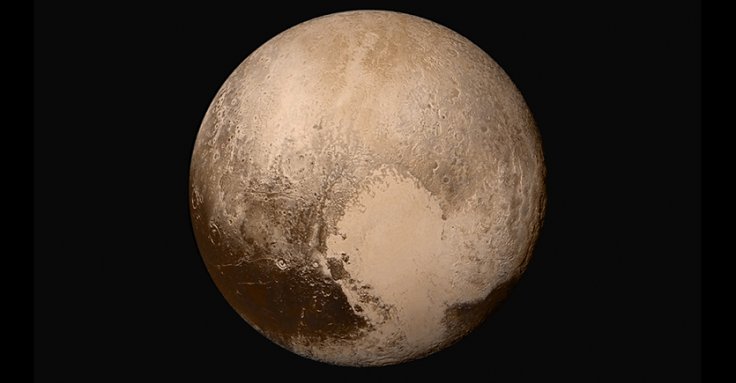
A new study conducted by a team of Japanese researchers has suggested the presence of a deep ocean under Pluto's icy crust. The study report published in the journal Nature Geoscience revealed that a gassy insulating layer beneath the icy surfaces of Pluto might be playing a crucial role in preserving these oceans.
Researchers in the study report noted that this insulating layer of gas might be maintaining the liquid nature of these oceans even under the icy crusts of Pluto.
This new study that involved researchers from Japan's Hokkaido University, the Tokyo Institute of Technology, Tokushima University, Osaka University, Kobe University, and at the University of California, Santa Cruz started their research by analyzing the data sent by NASA's New Horizons spacecraft flew through Pluto's system in 2015. During this flyby, New Horizons had captured images of a white-colored ellipsoidal basin named Sputnik Planitia, which is located near the equator.
Considering the location and topography, researchers initially assumed that there could be a sub-surface ocean in Sputnik Panitia. However, several experts dismissed these views and claimed that the ocean should have frozen a long time ago, considering the age of the dwarf planet.
Using computer simulations, researchers analyzed two scenarios: one where an insulating layer of gas hydrates existed between the ocean and the icy shell, and the another in the absence of gas hydrates. The simulation revealed that the subsurface ocean might have frozen completely before billions of years in the absence of gas hydrating insulation layer. However, when the gas hydrating insulation layer is present between the ocean and icy shell, the water hardly froze.
Shunichi Kamata of Hokkaido University who led the team during the research revealed that such a phenomenon could be observed in various other space bodies too. He also added that there could be more oceans in the universe than previously thought.
"This could mean there are more oceans in the universe than previously thought, making the existence of extraterrestrial life more plausible," said Kamata.
A few weeks back, another study report published in the Journal of Astrobiology and Space Science had suggested that there could be alien life forms living on Mars. Scientists who took part in this study made this conclusion after spotting algae-like creatures on the surface of the Red Planet.









